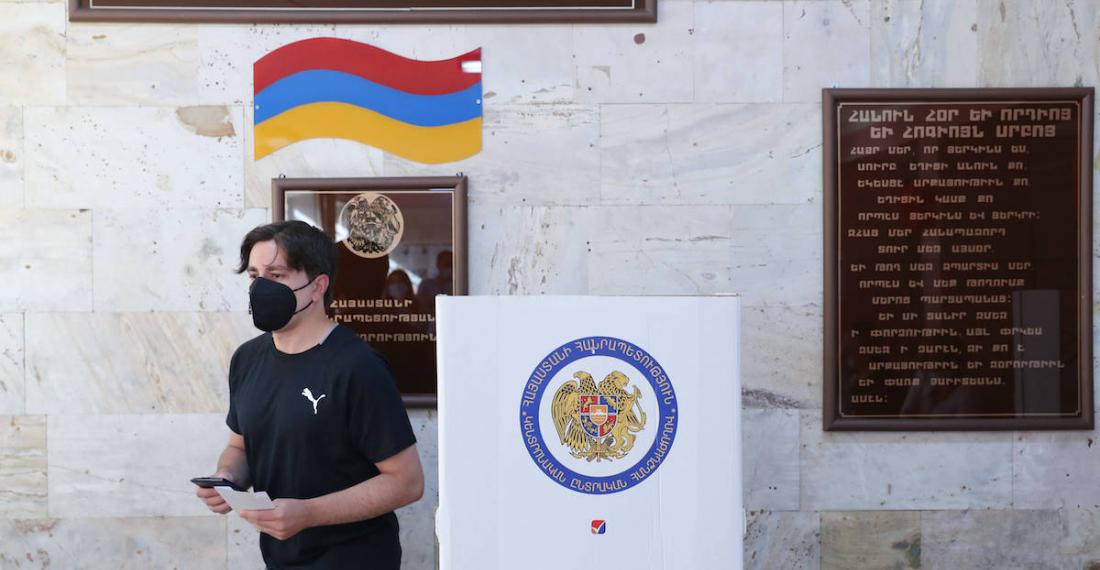There has been a positive reaction in the international community to the 20 June early parliamentary elections in Armenia. From Washington, Moscow, Brussels and beyond there has been praise for an overall peaceful and orderly election process.
In Washington, the US State Department issued a statement congratulating the people of Armenia on their June 20 parliamentary elections.
"We welcome the overall positive assessment by the OSCE/ODIHR Election Observation Mission. We are pleased that ODIHR’s preliminary conclusions noted voters’ human rights and fundamental freedoms were generally respected, contestants were able to campaign freely, and that ODIHR assessed election-day vote counting as positive. We share ODIHR’s concern regarding intense polarization and inflammatory rhetoric among key contestants. We urge Armenians of all political affiliations to respect the results of these elections once certified, employ the legal election grievance process to address issues of concern, and avoid political retaliation as Armenia continues to pursue a sovereign, democratic, peaceful, and prosperous future."
The statement added that the United States is committed to strengthening its partnership with Armenia based on shared democratic values. "We commend Armenia for the progress it has made with respect to reforms and anti-corruption efforts and encourage Armenia to continue along this path, in line with the aspirations of the Armenian people, as expressed in the spring of 2018. We urge all parties to respect the rule of law and democratic principles and look forward to working with the new Government to grow our bilateral relationship and cooperation."
In a snub to recent criticism by Armenian diaspora circles of the current US Ambassador to Armenia, the State Department statement said, "We commend Ambassador Lynne Tracy and U.S. Embassy Staff in Yerevan for their strong, ongoing support for Armenia’s democratic development. Through their dedication and hard work, we will continue to advance the U.S.-Armenia partnership."
In Brussels, the president of the European Council, Charles Michel congratulated the Armenian leader on twitter:
Warm congratulations to @NikolPashinyan on elections victory.
— Charles Michel (@eucopresident) June 21, 2021
The EU stands by Armenia 🇦🇲 in support of deepening reforms.
We are also ready to further support regional stabilisation and comprehensive conflict settlement.
In Moscow, Russian officials have positively spoken out about the results of the parliamentary elections.
The Kremlin's presidential press secretary, Dmitry Peskov, congratulated the Armenian people on their choice, referring to the information released by the Central Election Commission of Armenia. The Russian leadership expects that the Armenian republic will be able to enter the trajectory of sustainable development and cope with difficulties, Peskov said.
Additionally, the first deputy chairman of the international affairs committee of the Federation Council, Vladimir Jabbarov, reminded that “Russia is Armenia’s strategic partner”, as well as a “reliable and loyal friend, the closest friend to Armenia”.
Like Jabarov, Russian MP Viktor Vodolatsky wants to avoid provoking people to the streets and clashes. He advises the parties which lost the elections to sit around a table to negotiate for the benefit of Armenia.






